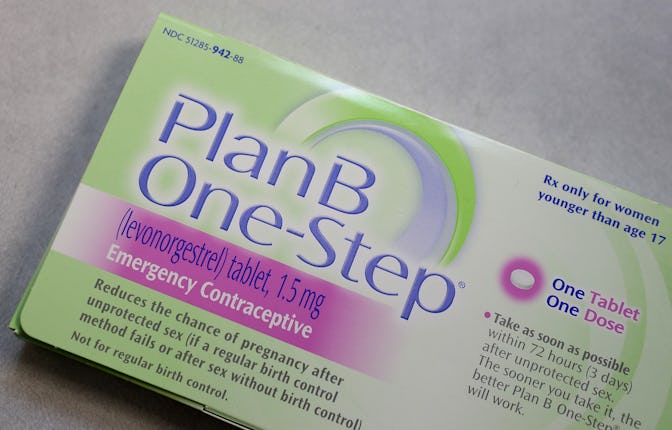The Roe decision is already making Plan B harder to find
Drug stores are selling out of morning after pills and limiting purchases because of post-Roe demand

As if the next chapter of these dark times couldn’t get more dystopian, large pharmacy chains are now limiting the number of emergency contraceptives you can buy. The new policies are a direct result of Supreme Court’s decision to overturn Roe v. Wade, which triggered a surge in demand for Plan B, Aftera, and other brands of what’s commonly known as the “morning after pill.” The pill is often sold over-the-counter without an ID or prescription, though the requirements vary.
CVS and Rite Aid seemingly have the most stringent limits, capping emergency contraceptive purchases at three pills per customer, CNN reported. While Matt Blanchette, senior manager of retail communications at CVS Pharmacy told the outlet that supply isn’t currently an issue online or in stores, they want to ensure "equitable access and consistent supply on store shelves.”
Per the Wall Street Journal, Walmart is imposing a limit of 10 pills, though a spokesperson told the outlet that the store imposes purchase limits on many products, and those limits can change based on fluctuating demand. Walgreens, meanwhile, hasn’t announced any caps — but they are sold out of both Plan B and Take Action emergency contraceptive pills online, a spokesperson told Axios.
According to the American College of Obstetricians and Gynecologists, emergency contraception “reduces the chance of pregnancy after unprotected sexual intercourse” and, as the WSJ noted, can be taken up to three days after having sex that could lead to pregnancy. It’s important to note that Plan B and other emergency contraceptives do not cause abortion; rather, they work to prevent the pregnancy from happening in the first place.
The rise in demand for morning after pills comes after the Supreme Court ruled on Friday to overturn Roe v. Wade, meaning states can now make their own laws regarding the legality of abortion. While several states had already imposed “trigger laws” that went into effect following the SCOTUS decision, there are several current legal battles and ongoing confusion over what is and isn’t legal — regarding both procedural abortions and medication abortions — in various locations. That said, abortion rights experts and advocates continue to provide information and resources for anyone unsure of how the Roe decision impacts them, how to safely get an abortion, or how to support others in need. Here’s hoping the dark hole of the stripping of our rights slows down just a little bit this week.
Editor's Note: Parts of this article did not meet Mic's editorial standards. It has been updated to properly attribute sources.